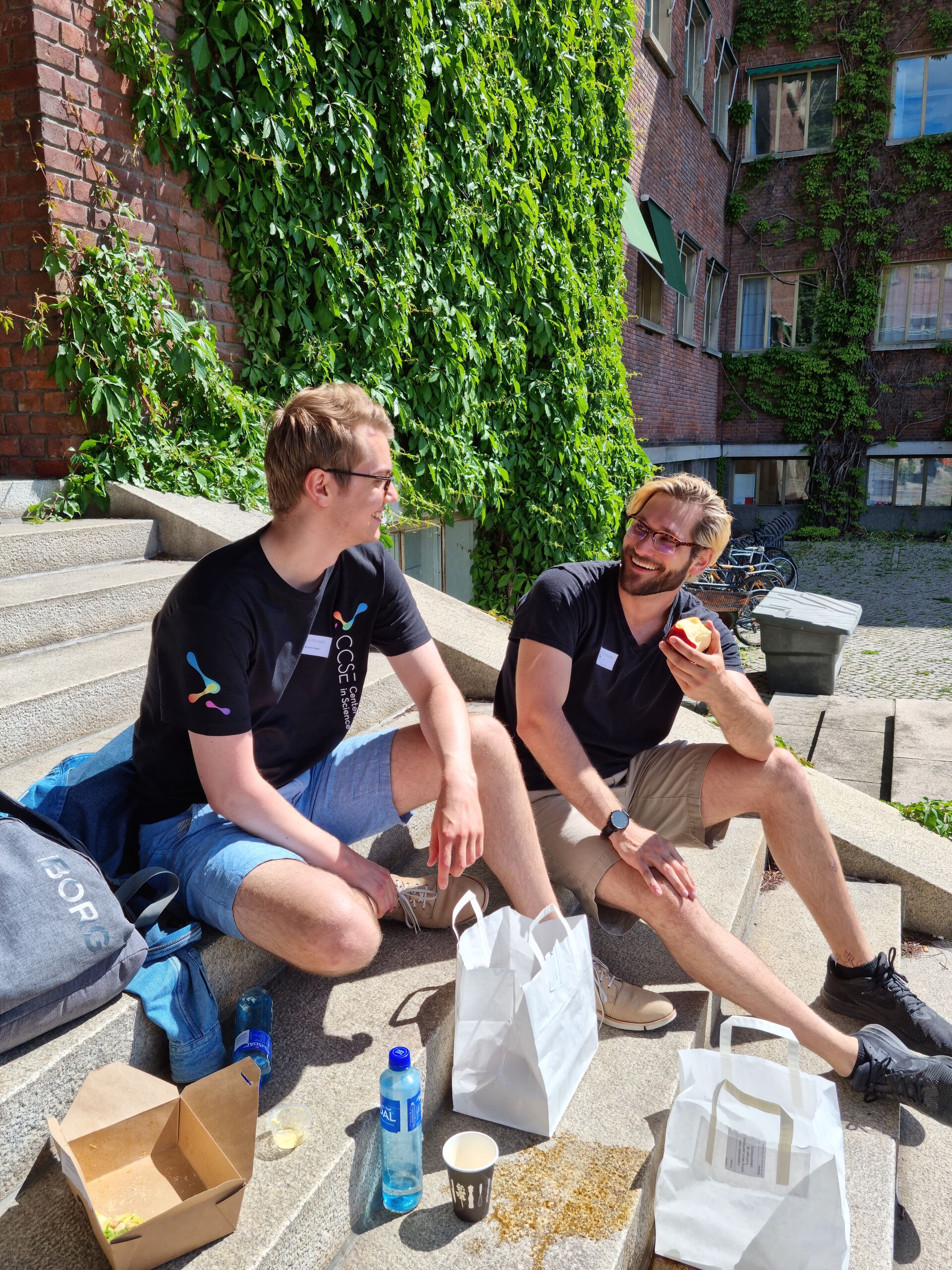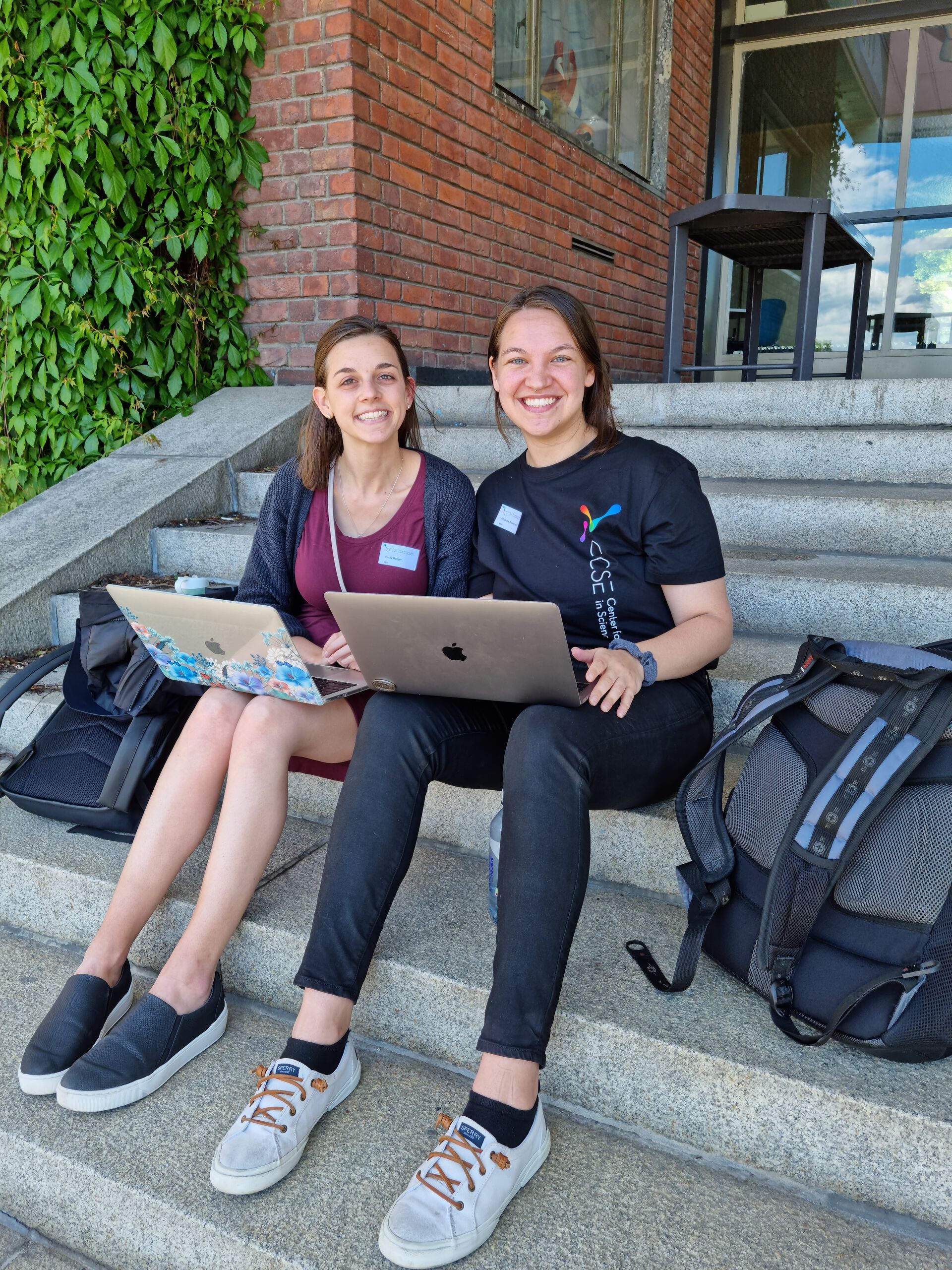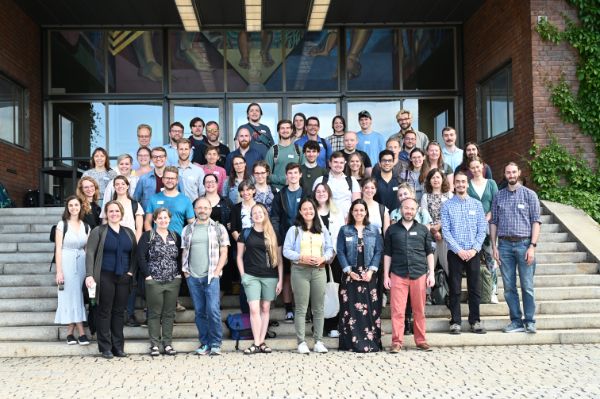Goals for the Summer Institute
We had several goals for this summer institute:
- First and foremost, we hoped to facilitate communication, connection, and collaboration between the different groups who was represented at the workshop. We are very excited that so many visitors participated from the PER groups at Oregon State University, Michigan State University, University of Colorado-Boulder, University of Oslo, the Norwegian University of Science and Technology, OsloMet, University of Helsinki and University of Jyväskylä!
-
However, we had a more specific goal with this workshop, which was to help our early-career researchers (graduate students, postdocs, undergraduates, and early-career faculty) help recover some of the travel and networking opportunities that were lost during the pandemic. For this reason, we built the workshop as follows:
-
Plenary sessions: An introduction to some of the work from four of the main attending PER groups (UiO, MSU, CU, and OSU)
- Discussion sessions: A chance to discuss the plenary content with the speakers, and/or learn about other work going on in each respective group
- Workshop strands: A chance to learn new skills in research and data analysis, writing, pedagogy, or professional skills
- Long lunches, open collaboration time, and communal dinners: These will give you a chance to strike up conversations with folks from outside your group and build your professional network
- Lightning talks and poster sessions: These will give you a chance to present some of your own work to your peers and fellow attendees
-
-
Of especial note here are the "lightning talks”, short talks (up to 8 minutes in length) where early-career researchers, such as PhD students, postdocs, undergraduates or early-career faculty, presented a snapshot of their work and interests.

The overall purpose of this conference was to see what other universities were researching in terms of Physics and Stem Education, while also giving graduate and undergraduate researchers the opportunity to network, and discuss their research interests and ideas after the Pandemic.
This conference included discussions, workshops, lightening and plenary talks, and a poster session, as well as trips to Museums and chances to explore Oslo. 
Each day had a specific theme, with a keynote talk on that topic from one of the research groups:
Monday: Computation (UiO Keynote)
Tuesday: Informal physics education (MSU Keynote)
Wednesday: Physics education research beyond cognitivist theories of learning
Thursday: Laboratory instruction (CU Keynote)
Friday: Upper-division physics education (OSU Keynote)
The workshops were led by Tor Ole Odden, Danny Caballero and Rachel Henderson, Elizabeth Gire, Greg Mulder, Heather Lewandowski and Anders Lauland, and included topics in:
- Machine Learning in PER,

- Writing,
- Physical Computing for Beginning College Students,
- Professional Skills,
- Pedagogy in Upper-Division Courses Based on Paradigms, and
- Outreach with Block-Based Programmable Drones.
Lightening Talk Presenters and Topics:
-
Victoria Borish, CU - Seeing Quantum Mechanics: The Role of Quantum Experiments
-
Sarah Castle, MSU - Exploring the Impact of Computing on Students’ Mathematical Creativity in Linear Algebra
-
Giaco Corsiglia, CU - Is Quantum Physics Intuitive? A Case Study with Students in Upper Division Quantum Mechanics
-
Tom Finzell, MSU - Sense-Making Tools in Computational Data Analysis
-
Paul Hamerski, MSU - Computation-Integrated Education Research from Students’ Perspectives
-
KC Walsh, OSU - Searching for the Interconnected Web of Learning
-
Daryl McPadden, MSU - Planning for in Participants’ Varying Needs and Abilities in Qualitative Research
-
Hannah Sabo, UiO - Mind the Gap: Challenges of Training Pre-Service Teachings in Computational Thinking

We also had a poster session. 
Participants had the opportunity to visit the Open Air Museum and Norwegian Folk History or the Norwegian Musuem of Cultural History.
